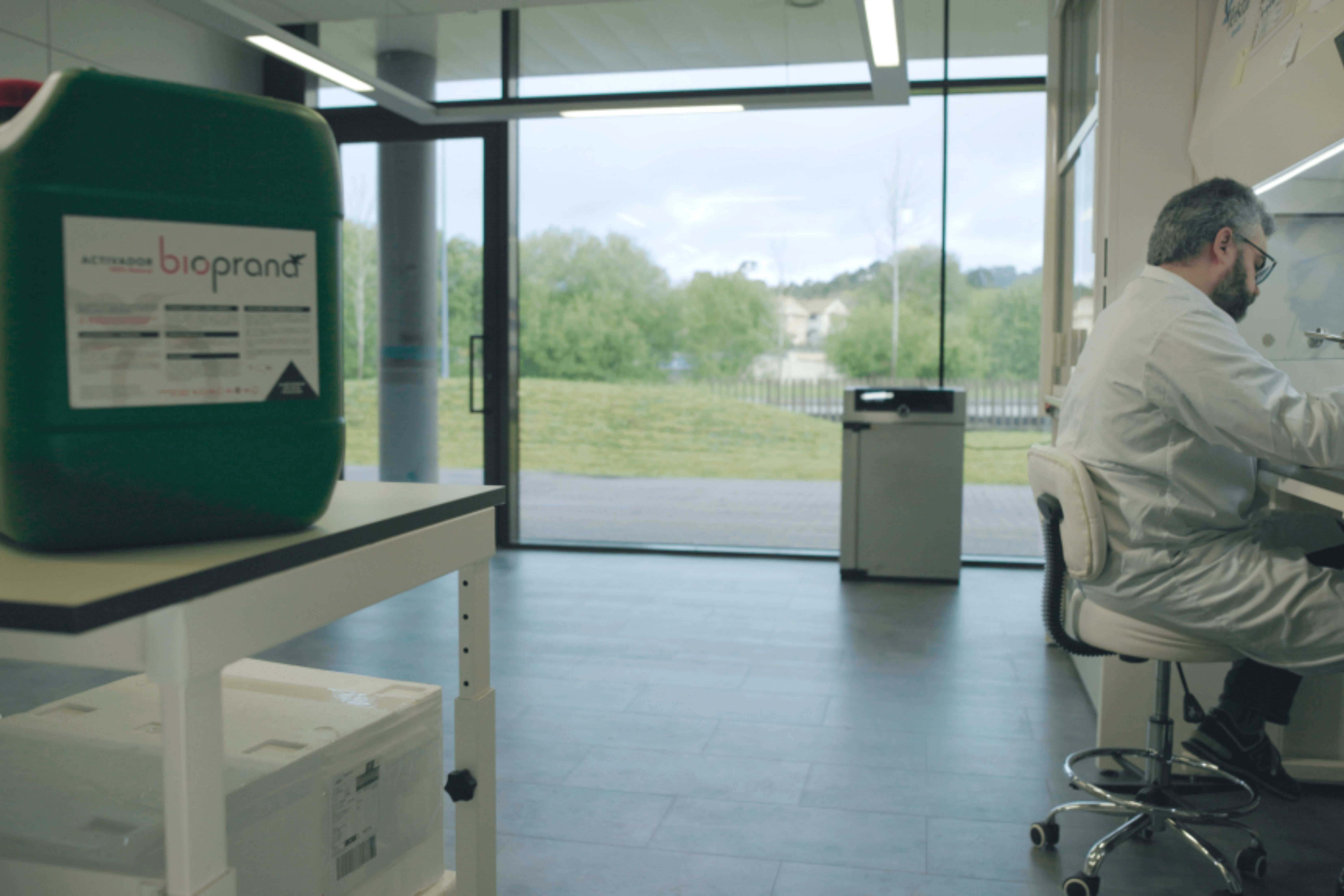
Latest information

Natural intelligence for slurry revaluation
Bioprana's origins are to be found on the other side of the Atlantic, specifically in Costa Rica. Carla Salazar, who founded this project in the field of green biotechnology with her husband Fernando Rey, of Galician origin, is a native of Costa Rica. Aware of the problems that slurry and its management pose for farms, they set up a knowledge transfer from Latin America, a region with a high level of expertise in this field, to Galicia. "We decided to come here for many reasons. Among them, the importance of the primary sector, the commitment of European governments to care for the environment and the proximity to farmers and ranchers to test our biosolutions," explains Carla Salazar, the company's current project manager.
Their Bioprana activator is a highly efficient bacterial cocktail that, when applied to organic matter such as slurry or manure from cattle or dairy farms, reverses the putrefaction process to initiate a "useful fermentation". As they themselves explain in an informative way, "in the end, what it comes down to is to find a balance and equilibrium between the presence of good and bad bacteria in order to obtain the results we are looking for".
Its biosolution has a long list of benefits: it minimises or reduces bad odours, improves manure liquefaction, avoids clogging of septic tanks and optimises their cleaning and management, and reduces the presence of pathogens. "In addition, last year, in partnership with the University of Stuttgart (Germany), we measured greenhouse gases and proved the effectiveness of Bioprana in reducing methane, nitrous oxide and ammonia emissions," he explains, so they also contribute to mitigating the effects of climate change.
Finally, to round off the complete circularity of the product, Bioprana's other great asset is its contribution to rebalancing the soil itself. "When this enriched slurry is used as fertiliser, it has a very important impact on the soil, as it helps to regenerate it and strengthen its microbiota, making it less dependent on pesticides and chemical fertilisers," he explains. "Now that there is so much talk about artificial intelligence, we're advocating the application of the natural intelligence that has always existed to solve the bottlenecks that now exist in society," says Salazar.
The company has its own R&D&I laboratory, created in 2020. In addition to Galicia, they have an extensive distribution network in Spain to market their products to dairy, beef and pig farms, which are their main market niche, although they are already detecting windows of opportunity in other sectors. "For example, we have a research project to be able to treat wastewater and help circularise it to combat situations of drought and water scarcity," they explain.
Support from InnovaPeme
Bioprana has been one of the beneficiary companies of the InnovaPeme programme, promoted by the Xunta de Galicia through the Galician Innovation Agency. "With this support we are carrying out a research project, which we have almost finished, on the use of microorganisms in slurry and how this affects the soil, including specific measurements aimed at reducing mineral fertilisers, which is a major challenge for the primary sector, not only for livestock farmers but for agriculture in general," he says.
In addition, with the University of Vigo, "we are carrying out a metagenomics project on these soils to help us identify the bacteria that are present with names and surnames".
In the immediate future, Bioprana wants to make an app available to its customers (livestock farmers, farmers...) with as much information as possible to help them improve how they manage their farms and provide them with the added value of incorporating the concept of sustainability.